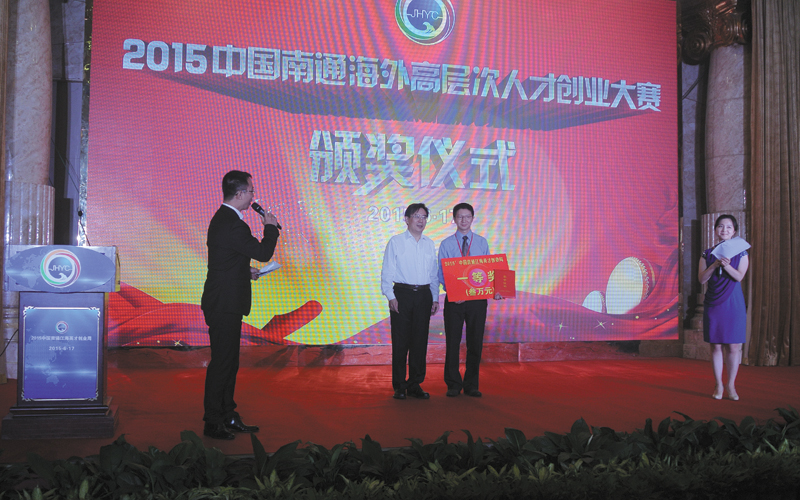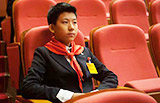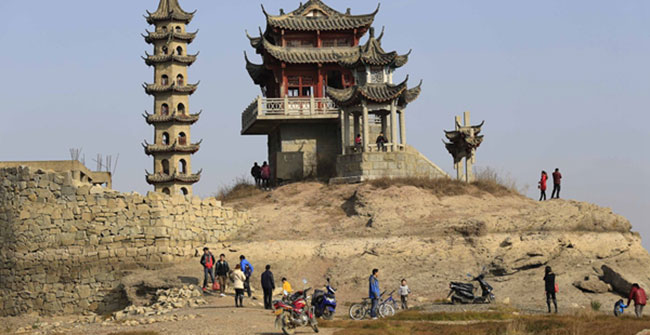Entrepreneurs aim high in Nantong
By Hao Nan, Zhang Ye and He Jiayu (China Daily) Updated: 2015-06-26 12:47A new biomaterial for bone healing or regeneration won a gold medal at a high-level entrepreneurship contest held on June 17 in Nantong, Jiangsu province.
The biomaterial invented by a research team led by Jiang Tao, a professor at the medical center of the University of Connecticut, can be used to treat or alleviate symptoms of osteoporosis and osteoarthritis.
Jiang said his team would communicate with authorities from the Nantong Economic and Technological Development Area to promote the project and study the local investment policies and business environment.
The 2015 Nantong High-Level Entrepreneurship Competition, an important part of the China Nantong Jianghai Talents Entrepreneurship Week from June 17 to 19, attracted 45 research teams from China and abroad.
Nineteen teams were selected as finalists, each with an advanced entrepreneurial project in such fields as biomedicines, building materials, electronic information and intelligent equipment and household appliances.
The top three projects, if located in Nantong, could receive a subsidy of between 1 million yuan ($161,100) to 3 million yuan from the city government.

Jiang Yumin, director of the Nantong Foreign Experts Bureau, said the contest was a good way to select talented people and promising projects. The comments on each project by experts and experienced entrepreneurs could give useful guidance and assistance to start-ups, Jiang said.
Liang Jun, executive director of a Tianjin technological company, demonstrated the company’s electrically operated car covers at the competition, which automatically deploy from the tail bumper when the car is locked.
The silver car cover is equipped with solar panels to convert solar energy to electrical energy.
They only occupy two-thirds of the tail bumper space, without any changes to the car appearance and performance, and also increase the vehicle’s ability to withstand rear collisions, Liang said. The price is acceptable to most drivers, he added.
Liang said many auto companies, such as Audi and Mercedes-Benz, have shown interest in the product.
Wu Yong, a telecommunications engineer at Germany’s Hannover University, and his team invented a system that allows people to pay using facial scanning.
“You can buy a cup of coffee or go shopping at a supermarket without bringing your wallet. Your face is your wallet,” said Wu, who has applied human face identification technology to stores’ cashiering and management services.
Stores providing the service need to first photograph their customers’ faces, so they can pay using the system when they revisit the stores. The system also matches the photos with credit or debit card information, which is highly encrypted.
Sui Xiaochen, a team member, said when a customer is ready to pay, the computer shows five faces based on the matching degree for the cashier to choose the correct one. The customer must then enter the correct password to finish the payment.
The system can also automatically generate coupons according to the customers’ consumption habits or provide product information and the latest discounts to specific customers.
Other entries included smartphone chips developed by Hu Jiawen and his team to help increase battery time and a 3D projection machine developed by Liu Peng and his team for children to see 3D images of characters from Hans Christian Andersen’s fairy tales.
Contact the writers through haonan@chinadaily.com.cn
- Nation in bid to ward off the Zika virus
- Li drops in for a chat at historic mosque
- Prison time reduced after 11 show they regret crimes
- PLA vows support, contributions to military reform
- Hainan looks to boost visitor numbers
- Excessive emissions a big problem in 59 cities
- Tough rules will cut marine pollution
- PLA revamps command system
- Teen calls for educational reform at political meeting
- Huge investment fraud ring smashed






